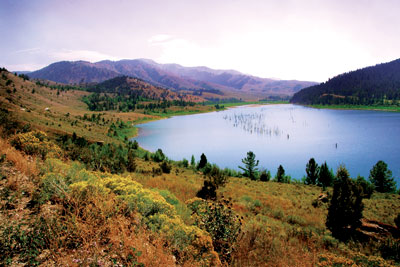All Nonfiction
- Bullying
- Books
- Academic
- Author Interviews
- Celebrity interviews
- College Articles
- College Essays
- Educator of the Year
- Heroes
- Interviews
- Memoir
- Personal Experience
- Sports
- Travel & Culture
All Opinions
- Bullying
- Current Events / Politics
- Discrimination
- Drugs / Alcohol / Smoking
- Entertainment / Celebrities
- Environment
- Love / Relationships
- Movies / Music / TV
- Pop Culture / Trends
- School / College
- Social Issues / Civics
- Spirituality / Religion
- Sports / Hobbies
All Hot Topics
- Bullying
- Community Service
- Environment
- Health
- Letters to the Editor
- Pride & Prejudice
- What Matters
- Back
Summer Guide
- Program Links
- Program Reviews
- Back
College Guide
- College Links
- College Reviews
- College Essays
- College Articles
- Back
forest fires
Forest fires, whether natural or otherwise (e.g. lightening, and arson) consume an increasing amount of acreage each year (“Wildfires Heat Up 2”). As a result, families and pets are losing their homes and their lives. Clearing out underbrush and picking up small, dead plants can help decrease the chance of a forest fire. Fire is one of the planets most destructive forces, it destroys all who block its path (Wildfires 4). A raging forest fire can be started with the simple drop of a match, or a stray spark born by a train’s metal wheel striking the track (Wildfires 4). Sometimes even people start forest fires. This act is called arson. Do you know that 20,000 square miles of land is destroyed by forest fires every year? With all of the forest fires occurring today, firefighters and scientists are searching frantically for a solution. One that will prevent forest fires from happening, and when they do occur, how to calm them.
Just about anything can be the start of a raging forest fire. They begin with things like machines, automobiles, trains, the misuse of a campfire, or even natural causes like lightening (Macmillan Encyclopedia of the Environment 122-123).
At times even the weather doesn’t cooperate. Hot, dry climates make forests more likely to burn. High winds cause fires to spread more quickly, making it more difficult to extinguish (Natural Disasters: Fires 6).
As a result of the many forest fires going on today, forests are vanishing. There are billions of dollars being spent on recovery, and homeowners, families and pets are being displaced (“Wildfires Heat Up 2”). Despite the horrible effects of forest fires there are benefits. Forest fires clear out unnecessary underbrush and remove small dead plants. They also nourish the soil, destroy the least healthy vegetation and give young trees room to grow (The Associated Press Library of Disasters: Fires and Explosions 3). If you really think about it, forest fires are not all that terrible. These benefits are all part of the Earth’s natural process.
Although forest fires have a horrible reputation, there are solutions. Even though these solutions help prevent forest fires from occurring, they might be the cause of other environmental problems. One way to decrease the number of forest fires is favorable weather conditions, such as rain, snow, etc. (Macmillan Encyclopedia of the Environment 123). Another solution is to remove potential fuel from its path like dense underbrush and small trees. This will keep the fire from burning more than needed. Neither of these causes other environmental issues. In fact they lessen the chance of a forest fire occurring. Even though adding water to a river or lake may reduce the chance of a forest fire, it increases the chance of a flood (Macmillan Encyclopedia of the Environment 123).
As a 6th grader, I can decrease the likelihood of a forest fire by getting together a group of friends and removing all the underbrush, dead plants, and small trees from the forest. Another great plan in preventing forest fires is to water our plants, and the plants around us so they do not become dry and flammable. Making sure our campfires are completely extinguished before leaving is yet another example of helping the environment. Lastly, remember not to play with matches. If every 6th grader took part in the prevention of forest fires, forest fires would not be as common.
Forest fires, whether natural or otherwise, consume an increasing amount of acreage each year. As a result families and pets are losing their homes and their lives. Clearing out underbrush and picking up small, dead plants help decrease the chance of a forest fire. If people thought before they acted many forest fires could be prevented. Mans continued encroachment into natural areas has increased the accidental likelihood of a forest fire.

Similar Articles
JOIN THE DISCUSSION
This article has 2 comments.
Interesting article. I learned a lot. Keep up the great work. I am a big fan of Sweet Tears' work.
